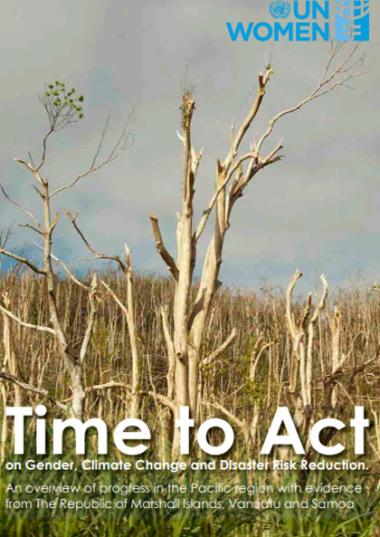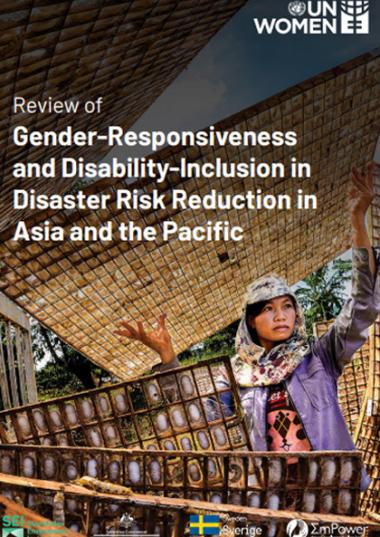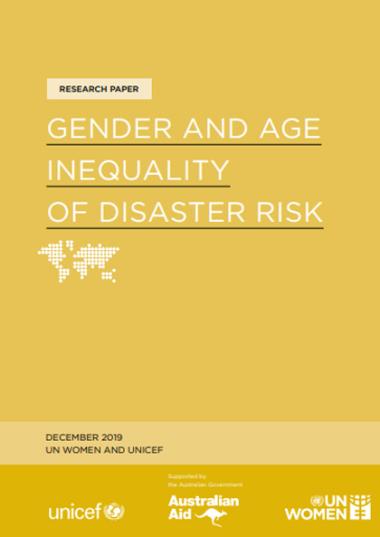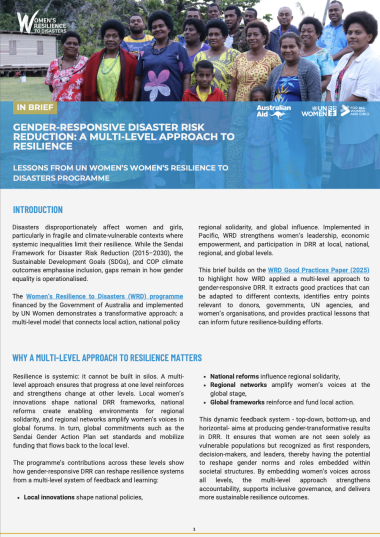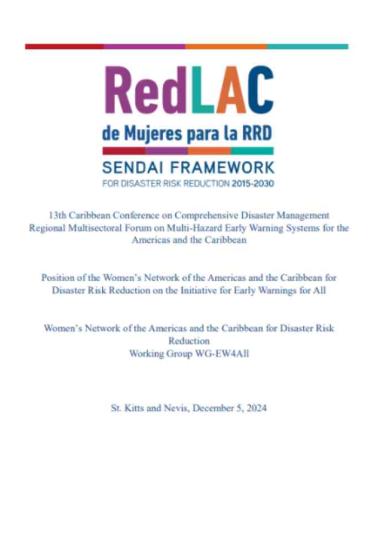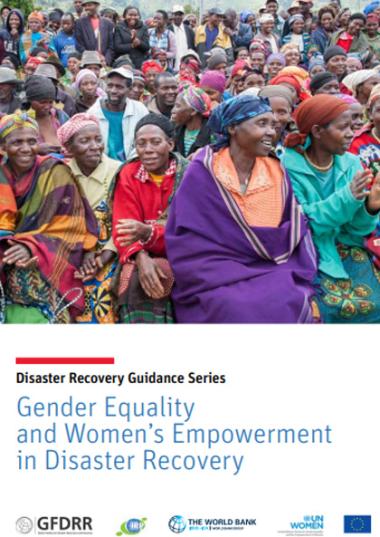
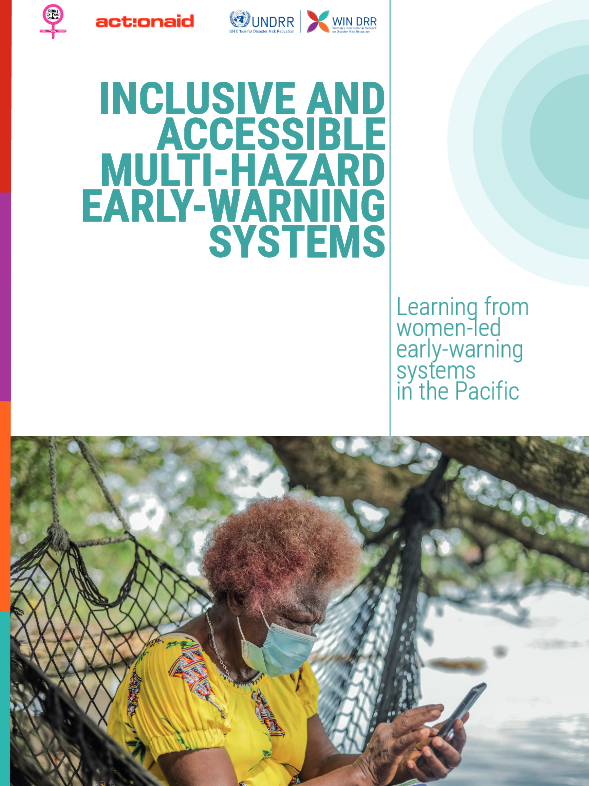
Learning from women-led early-warning systems in the Pacific
The Sendai Framework for Disaster Risk Reduction 2015-2030 recognizes the importance of multihazard early-warning systems (MHEWS) in supporting disaster risk reduction efforts. In particular, it includes commitments to investing in and strengthening people-centred MHEWS, disaster risk communication mechanisms and hazard-monitoring telecommunications systems – emphasising a participatory and gender-inclusive approach. Specifically, Target G of the Sendai Framework aims to “substantially increase the availability of and access to multi-hazard early-warning systems and disaster risk information and assessments to the people by 2030”.
In the context of the midterm review of the Sendai Framework, this report aims to support governments and other local and international partners across the Asia-Pacific region in developing inclusive and accessible MHEWS by drawing on lessons from the success of a number of women-led and disability-inclusive MHEWS established in the Pacific Region, in particular:
- Fiji Women’s Weather Watch
- Vanuatu’s Women Wetem Weta
- Papua New Guinea’s Meri Got Infomesen
- Fiji Disabled People’s Federation Emergency Operations Centre.
Based on these experiences, this report identifies a number of recommendations that can be adapted by governments for more inclusive and accessible MHEWS, which can be applied in different contexts. While the challenges of developing inclusive and accessible MHEWS are well known and documented, these recommendations highlight the benefits of the unique approach of the Pacific women-led initiatives. As countries work to achieve Target G of the Sendai Framework by 2030, incorporating these recommendations will help to increase the availability of, and access to, multi-hazard early-warning systems and disaster risk information in a way that is inclusive and accessible to all, leaving no one behind.
This study was commissioned by the United Nations Office for Disaster Risk Reduction (UNDRR) for the Women’s International Network on Disaster Risk Reduction (WIN DRR), in partnership with Shifting the Power Coalition and ActionAid Australia.
The research was conducted remotely and involved a literature review and key informant interviews from representatives of organizations directly involved in the implementation or engagement with women-led MHEWS in Fiji, Papua New Guinea, Tonga and Vanuatu
